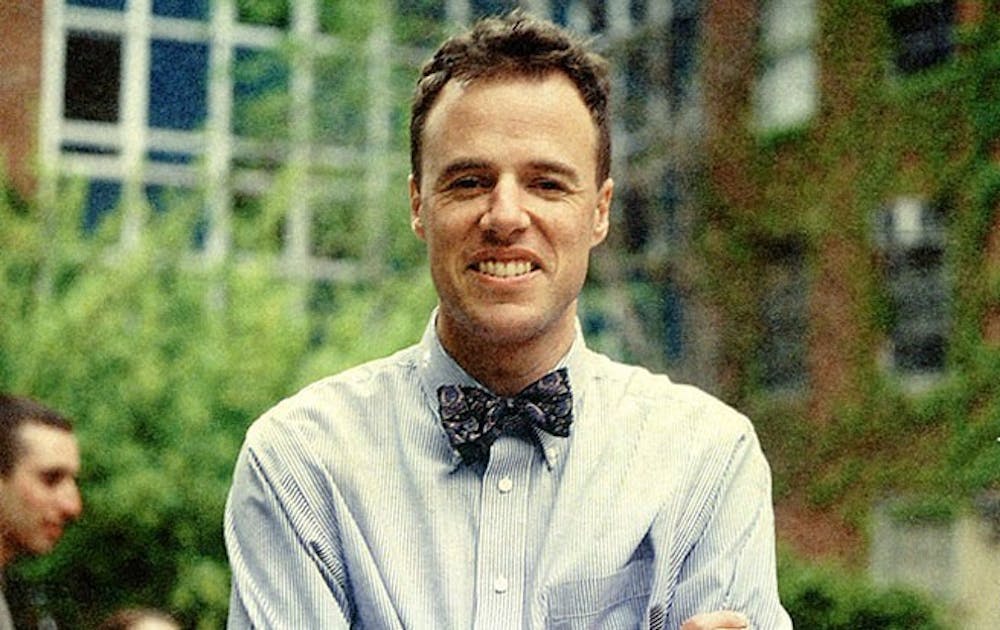The University is using legal measures in an attempt to acquire communication records used in a book about the 2006 lacrosse rape case.
To collect evidence as defense in a civil lawsuit, lawyers for Duke recently filed a motion in federal court to compel KC Johnson, co-author of a book criticizing Duke and Durham’s handling of the case, to surrender records of communication between Johnson, members of the lacrosse team and other parties involved, said Patrick Strawbridge, Johnson’s attorney.
Johnson has not handed over the records because the University’s demand is an encroachment on freedom of the press guaranteed by the First Amendment of the U.S. Constitution, Strawbridge added.
“We believe that KC Johnson would not be a proper witness in any case for the information they are seeking,” he said. “We especially don’t believe he’s proper, given First Amendment protections that apply to unpublished communications of a journalist.”
In September 2007, five months after charges were dropped against three Duke lacrosse players, Johnson, a professor of history at Brooklyn College, co-authored “Until Proven Innocent: Political Correctness and the Shameful Injustice of the Duke Lacrosse Rape Case.” The players were falsely accused of forcible rape and of kidnapping stripper Crystal Mangum. Johnson also founded the blog “Durham-in-Wonderland,” which he continues to update with information on the ongoing legal ramifications of the case.
In subsequent years, a civil lawsuit filed by unindicted lacrosse players and their parents accused the University of punishing team members who were not charged with any crimes and giving players poor legal counsel. A federal judge in North Carolina rejected some claims in 2011, but allowed others to proceed against several University administrators, including President Richard Brodhead.
On Sept. 17, Duke’s attorneys filed a subpoena in the U.S. District Court of Portland, Maine seeking documents related to Johnson’s communication with individuals involved in the case.
He has thus far declined to testify or provide the records, which has put a roadblock in the case between the former players and the University.
Duke is seeking Johnson’s records because its attorneys contend that, during the 2006 trial, the accused players or their attorneys shared information with Johnson that would invalidate the protection given by attorney-client privilege. This includes information such as how players decided to access DukeCard swipe history data that helped create time-dependent alibis, according to filings by the attorneys. Duke also intends to show that University lawyers did not provide poor counsel by presenting the legal advice the accused received from their private attorneys.
Peter DeTroy, an attorney from Portland who is representing Duke locally, deferred comment to Duke’s lead outside counsel, the Raleigh-based law firm Ellis and Winters.
Ellis and Winters declined to comment, as the matter is related to pending litigation in the U.S. District Courts for the Middle District of North Carolina and for the District of Maine, Tom Segars, an attorney from the firm, wrote in an email Tuesday.
Although the University’s counsel itself is not directly involved in the legal proceedings concerning Johnson’s records, Pamela Bernard, vice president and general counsel for Duke, could not be reached for comment on matters pertaining to this topic.
In the Sept. 17 filing, DeTroy responded to Strawbridge’s argument by noting that the University is seeking information from sources named openly in Johnson’s book, not anonymous sources.
Strawbridge said this rebuttal is irrelevant to the outcome of the case.
“Our view is that the information that the University is seeking... was always meant to be kept confidential,” Strawbridge said. “But it doesn’t matter—confidential or non-confidential—the federal rules and the First Amendment prohibit Duke from accessing notes in these circumstances.”
Get The Chronicle straight to your inbox
Signup for our weekly newsletter. Cancel at any time.

